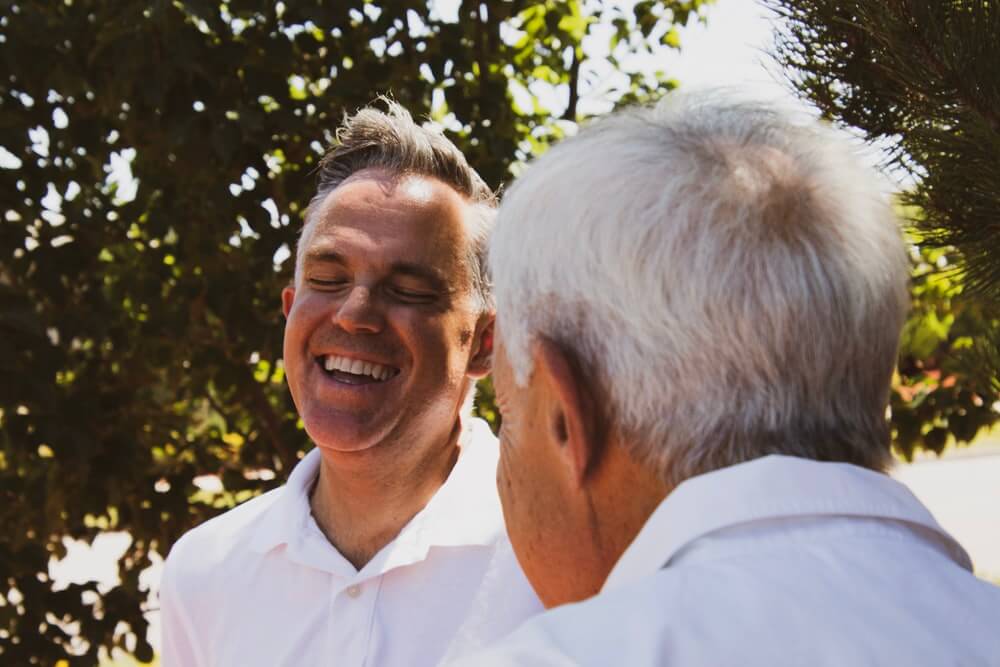
Aging Healthy: What to Expect and What’s Just a Myth
Aging is a natural progression that every human being goes through. It’s a journey that can be met with both excitement and trepidation. This article will explore what aging truly entails. We will dispel some common myths and provide insights into how you can age healthy. Remember, age is just a number, and the quality of your life truly matters.
The Science Behind Aging
Aging is a complex and fascinating process that affects every living organism, including humans. To truly appreciate the art of aging gracefully, it’s essential to delve deeper into the science behind this natural phenomenon.
Factors Affecting the Aging Process
While aging is inevitable, it’s not a one-size-fits-all journey. Several factors influence how individuals age. Understanding these elements can help you navigate the process with greater insight and control.
- Genetics. Your genetics plays a significant role in how you age. Some people inherit genes associated with longevity and a lower risk of certain age-related diseases. However, genetics represents only a single element of the equation.
- Lifestyle Choices. Your daily choices can affect your aging process. Drinking excessive alcohol, smoking, and a sedentary lifestyle can accelerate aging. Conversely, adopting a healthy lifestyle can slow down the effects of aging.
- Environmental Factors: Your environment can affect how you age. Exposure to pollution, UV radiation, and toxins can contribute to premature aging. On the other hand, living in a clean and safe environment can promote healthier aging.
- Chronic Diseases. Managing chronic diseases like diabetes, hypertension, and cardiovascular disease is crucial for healthy aging. Regular checkups and adherence to medical advice can make a significant difference. Visit a Vein specialist in Orlando to evaluate your vein condition.
- Stress. Chronic stress can impact your body and accelerate aging. High-stress levels are associated with various health problems. Managing stress is crucial for graceful aging.
Common Myths about Aging
Aging has its fair share of myths and misconceptions that can cloud our perception of this natural process. Let’s debunk some of the most prevalent myths and replace them with facts.
Myth #1: Aging Means Decline
Fact: While it’s true that specific physical changes accompany aging, it doesn’t necessarily equate to an overall decline in health. Many older adults report feeling more happy and fulfilled in their later years. Aging can bring wisdom, a deeper sense of self, and opportunities for personal growth.
Myth #2: Aging Leads to Declining Mental Abilities
Fact: The brain remains remarkably adaptable throughout life, a concept known as neuroplasticity. This means that you can continue to learn and acquire new skills at any age. Lifelong learning is not only possible but also beneficial for cognitive health.
Myth #3: Aging Equals Loneliness
Fact: Loneliness is not an inherent consequence of aging. While some older adults may face social isolation, many maintain active social lives and strong relationships. Engaging in social activities to connect with loved ones can combat loneliness.
Myth #4: Aging Means Becoming Frail
Fact: Physical changes can occur with age. However, maintaining an active and healthy lifestyle can significantly delay the onset of frailty. Regular exercise, a balanced diet, and proper healthcare can help you stay physically strong and resilient.
Healthy Aging Habits
Maintaining a high quality of life as you age involves adopting healthy habits that support your physical, mental, and emotional well-being. Let’s explore key practices that can help you age gracefully and enjoy the journey.
Nutrition and Diet
A balanced diet is the cornerstone of healthy aging. Proper nutrition provides essential nutrients that can:
– Support overall health
– Boost your immune system
– Help manage chronic conditions
Here are some dietary tips for healthy aging:
- Balanced Diet. Eat a variety of foods from all food groups, including:
– Fruits and vegetables
– Lean proteins
– Whole grains
- Portion Control. Pay attention to serving sizes to prevent excessive eating and maintain a healthy weight.
- Hydration. Maintain proper hydration by drinking plenty of water throughout the day. Dehydration can lead to various health issues.
- Limit Processed Foods. Minimize your intake of processed and high-sugar foods. They can contribute to chronic diseases.
Exercise and Fitness
Physical activity is vital for overall health as you age. Regular exercise can help you:
– Maintaining strength and flexibility
– Prevent age-related muscle loss
– Reduce the risk of falls
– Improve cardiovascular health
Consider these exercise tips:
- Aerobic Exercise. Engage in aerobic activities like walking, swimming, or cycling to boost cardiovascular fitness.
- Strength Training. Incorporate strength training exercises to maintain muscle mass and bone density. Aim for two or more days of strength training per week.
- Flexibility and Balance. Practice exercises that enhance flexibility and balance to reduce the risk of falls and injuries.
- Stay Active. Avoid prolonged sitting and aim for daily movement. You can perform even light activities like gardening.
Conclusion
Aging healthy is about more than just looking good. It’s about feeling good, staying engaged, and finding purpose. You can navigate the aging process with grace and vitality by dispelling myths and adopting healthy habits.






